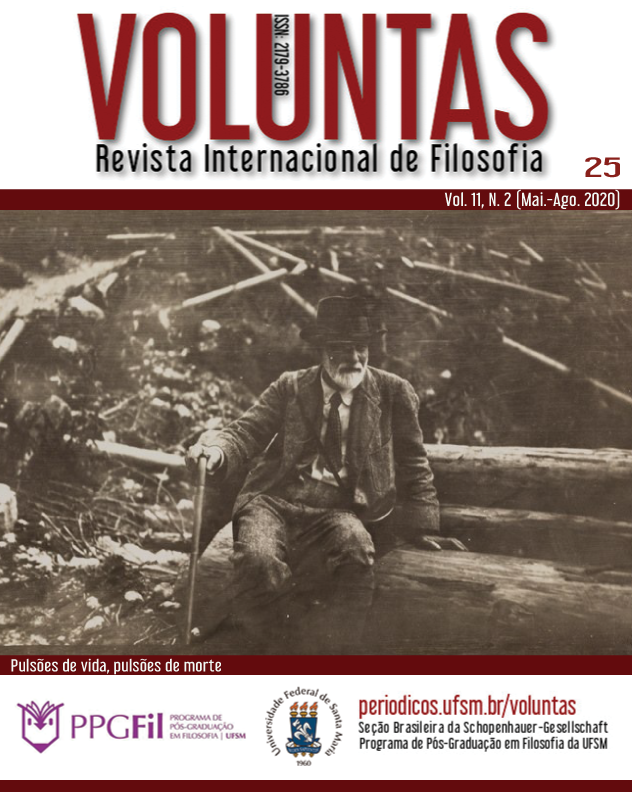The driving dualism and its demands
DOI:
https://doi.org/10.5902/2179378647914Keywords:
Metapsychology, Drives, Dualism, Libido, Destructiveness, Compulsion to Repeat, Nirvana principle, Pleasure principleAbstract
The main objective of this paper is to explain how the requirement to maintain the dualism of drives in Freud's metapsychology is closely linked to the concept of drive as organic elasticity or as the expression of the inertia of organic life.Downloads
References
FREUD, S. Entwurf einer Psychologie. In: Aus den Anfängen der Psychoanalyse [1887-1902]. Frankfurt/M: Fischer Verlag, 1975.
FREUD, S. Jenseits des Lustprinzips. In: Freud, S. Studienausgabe. Band III. Psychologie des Unbewussten. Ed. A. Mitscherlich; A. Richard; J. Strachey. Frankfurt/M: Fischer Verlag, 1982a
FREUD, S. Totem und Tabu. In: Freud, S. Werke. Studienausgabe. Band IX: Fragen der Gesellschaft. Urprünge der Religion. Ed. A. Mitscherlich; A. Richard; J. Strachey. Frankfurt/M: Fischer Verlag, 1982b
FREUD, S. Das ökonomische Problem des Masochismus. In: Freud, S. Studienausgabe. Band III. Psychologie des Unbewussten. Ed. A. Mitscherlich; A. Richard; J. Strachey. Frankfurt/M: Fischer Verlag, 1982c
MEZAN, R. Freud: A Trama dos Conceitos, 3a. Ed, São Paulo: Ed. Perspectiva, 1991
MONZANI, L. R. Freud. O Movimento de Um Pensamento. Campinas: Editora da Unicamp, 1989
Published
How to Cite
Issue
Section
License
The submission of original manuscripts to this journal implies the transference, by the authors, of the copyrights for printed and digital publication. The copyrights of a published manuscript belong ultimately to the author, and only the copyright for its first publication is reserved to the journal. Authors may only use the same results in other publications explicitly indicating this journal as the medium of the original publication.
Licence
Attribution-NonCommercial-ShareAlike 4.0 International (CC BY-NC-SA 4.0) - This license lets others remix, tweak, and build upon your work non-commercially, as long as they credit you and license their new creations under the identical terms.






